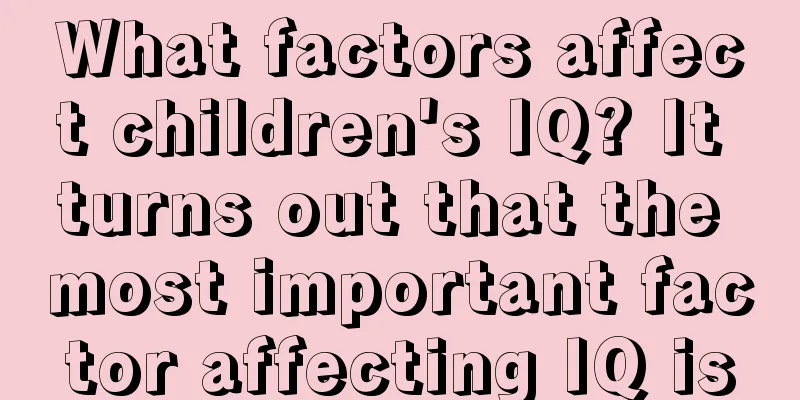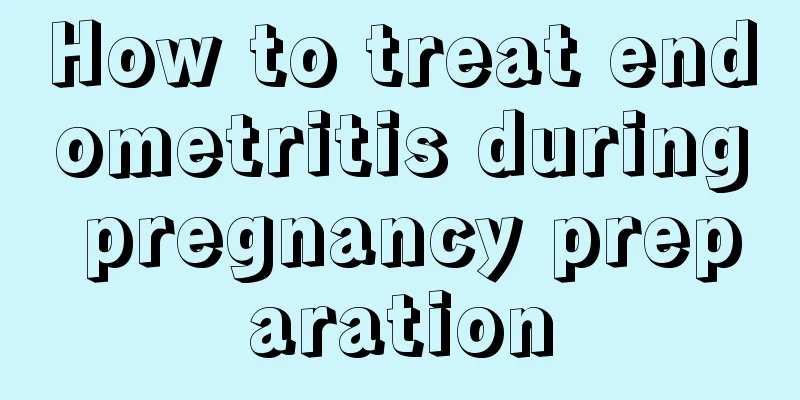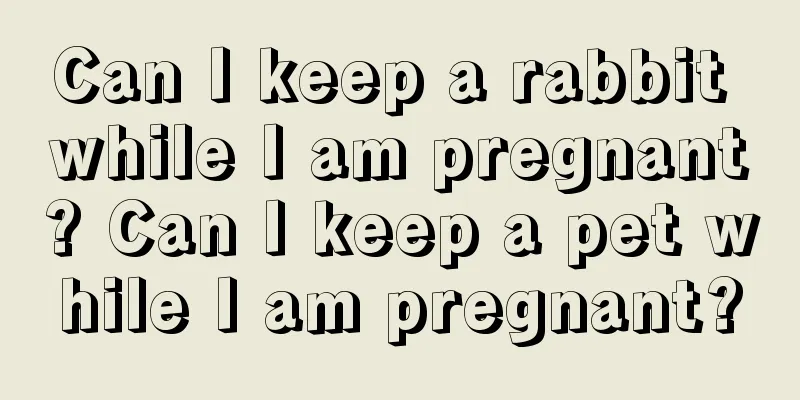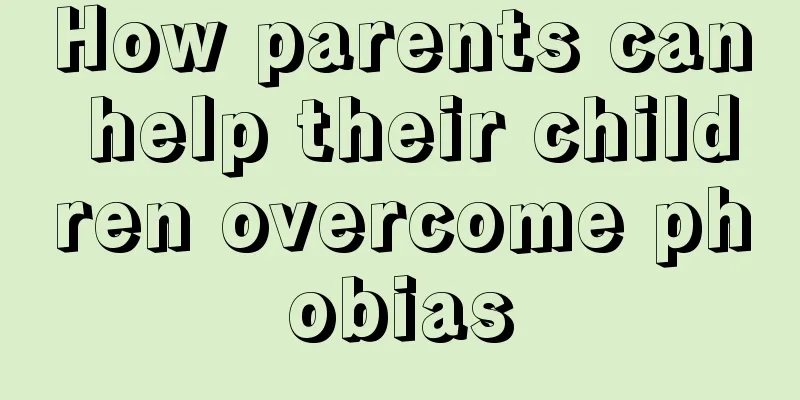Should children with rhinitis see a pediatrician or an otolaryngologist? What are the symptoms of children with rhinitis?
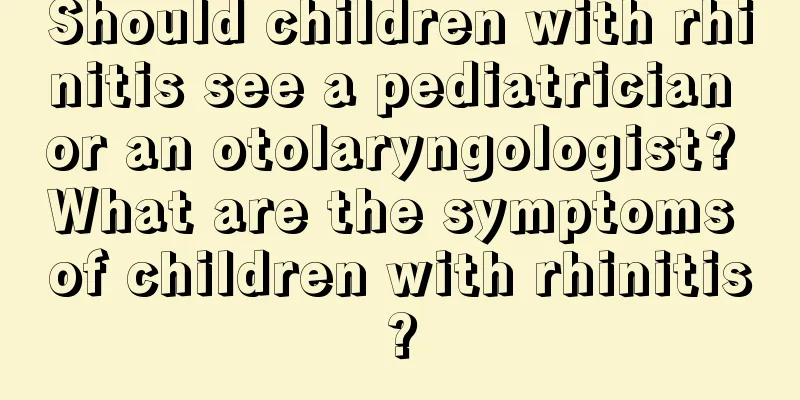
|
When a child develops rhinitis, parents should intervene as soon as possible, because if the child's rhinitis is not treated in time, it will become completely incurable. If necessary, the child can be taken to the hospital for treatment. So should children with rhinitis see a pediatrician or an otolaryngologist? What are the symptoms of rhinitis in children? Should children with rhinitis see a pediatrician or an otolaryngologist?Children with symptoms of rhinitis can go to the hospital to see the ENT department or the pediatric department. Rhinitis may be caused by infection or allergies. You need to go to the hospital in time to clarify the cause of rhinitis, and then cooperate with the doctor for treatment in time. If a child has allergic rhinitis, he must stay away from allergens during the recovery period, and try not to let the child come into contact with abnormal substances such as dust, pollen, and animal hair. Pay attention to regular cleaning of the room, open windows frequently, and keep the indoor air circulating. If symptoms such as nasal itching and nasal congestion occur, you can use nasal spray under the guidance of a doctor to relieve it. What are the symptoms of rhinitis in childrenFirst of all, there are acute rhinitis and chronic rhinitis. The symptoms of acute rhinitis are mainly blocked nose and increased secretions. In the early stage, it will be clear water-like, and then slowly turn into mucus-purulent nasal discharge. Children may have a low fever or physical discomfort; while chronic rhinitis is caused by the development of acute rhinitis. Because of co-infection with other bacteria, incomplete cure or repeated attacks, there will be some complications such as otitis media and bronchitis. Secondly, if the baby has ice eyes, parents should pay attention to care in the daily environment to avoid aggravating the baby's condition. Keep the family environment clean, and reduce the baby's outdoor activity time when the outdoor air is poor; pay attention to the method when twisting the nose. Babies with rhinitis will have more nasal discharge. When twisting the nose, you can first press one nostril, and gently apply force on the other side, alternately, pay attention to the appropriate force, and avoid affecting other organs. Finally, maintain a happy mood. If you are in a depressed state for a long time, it will be detrimental to the recovery of the disease; reasonably match your baby's diet and supplement vitamin C, because vitamin C can reduce the recurrence of your baby's rhinitis; give your baby more water, which will help relieve rhinitis and reduce the degree of nasal congestion. Will rhinitis cause coughing in children?Children generally do not have coughing problems after developing rhinitis, and it is suspected that it may be caused by inflammation in the bronchial area. Coughing is a protective twitching spasm caused by irritation of the trachea, which is generally caused by inflammation in the trachea. Patients are advised to eat a light diet, avoid spicy, greasy, and overly sour foods, and try not to drink coffee and carbonated beverages. If it is common allergic rhinitis, it is recommended to do an allergen screening to determine what the child is allergic to, and avoid allergic foods or things in the air or environment after the allergens are determined. If the patient has a cough due to increased airway reactivity, inhaled drugs for the treatment of rhinitis need to be used for appropriate treatment, and oral leukotriene modifiers should be taken at the same time. Will children with rhinitis have nosebleeds?Children with rhinitis will have nosebleeds. Children with rhinitis will have congestion and swelling of the nasal mucosa, which will lead to nasal congestion and nasal discomfort. During this period, children will rub their noses repeatedly, which can easily lead to rupture of the nasal mucosa and capillary bleeding. At this time, it is necessary to keep the nasal hygiene of children, breathe more fresh air, and stay away from dust and smoke to prevent the symptoms of rhinitis from worsening and reduce the occurrence of nosebleeds. Children's rhinitis may be caused by various viral infections or various bacterial infections. Be sure to register for a regular hospital pediatric or otolaryngology department. Through detailed examinations, the specific cause of the disease can be identified, and then scientific and standardized treatment and intervention can be given. |
<<: Can children's rhinitis cause fever? Can children's rhinitis cause headaches?
>>: What is the best way to treat children's rhinitis? What causes children's rhinitis?
Recommend
How to cultivate a good habit of taking a nap for your baby
Newborns spend most of their time sleeping, but a...
What to do if your baby is picky about food? A complete solution for your baby's picky eating
Babies' partial eclipse is the most troubleso...
What should pregnant mothers pay attention to? What should pregnant mothers not do?
Everyone must have heard of pregnancy in life, bu...
Can alcohol wipes disinfect and sterilize? Can alcohol wipes be used to wipe mobile phone screens?
Alcohol wipes cannot be used to wipe the face, be...
How to control too much milk?
Every female friend's milk supply situation i...
Can a safety seat be placed on the front passenger seat? Where is the safest position to install a safety seat?
Cars have become a daily means of transportation ...
How long does it take for baby eczema to heal itself? Can baby eczema heal itself?
Newborn babies will have eczema after birth, whic...
Can alcohol wipes be used to wipe the buttocks? Can alcohol wipes be used to wipe glasses?
Alcohol wipes are often used to wipe hands or som...
What kind of water is good for babies? What kind of water is good for babies?
What kind of water is good for babies to drink? W...
How to lose weight during breastfeeding? Diet for weight loss during breastfeeding
Scientific weight loss during lactation can help ...
What is the appropriate water temperature for a baby's bath in winter? What is the appropriate indoor temperature for a baby's bath in winter?
Bathing is something we do every day. Everyone ne...
Do I need to eat the pumpkin seed shells to kill worms? How many days do I need to eat pumpkin seeds to kill worms?
Do you need to eat the shell of pumpkin seeds to ...
Why do newborns roll their eyes when they sleep? What are the consequences of not taking a nap for children?
Working parents may have the habit of taking a na...
What can pregnant women eat to stimulate their appetite? What can pregnant women eat to stimulate their appetite in summer?
Pregnant women will have a poor appetite due to t...
Can newborns with jaundice eat Coptis chinensis? Can newborns with jaundice bask in the sun through glass?
It is a common phenomenon for newborns to suffer ...



